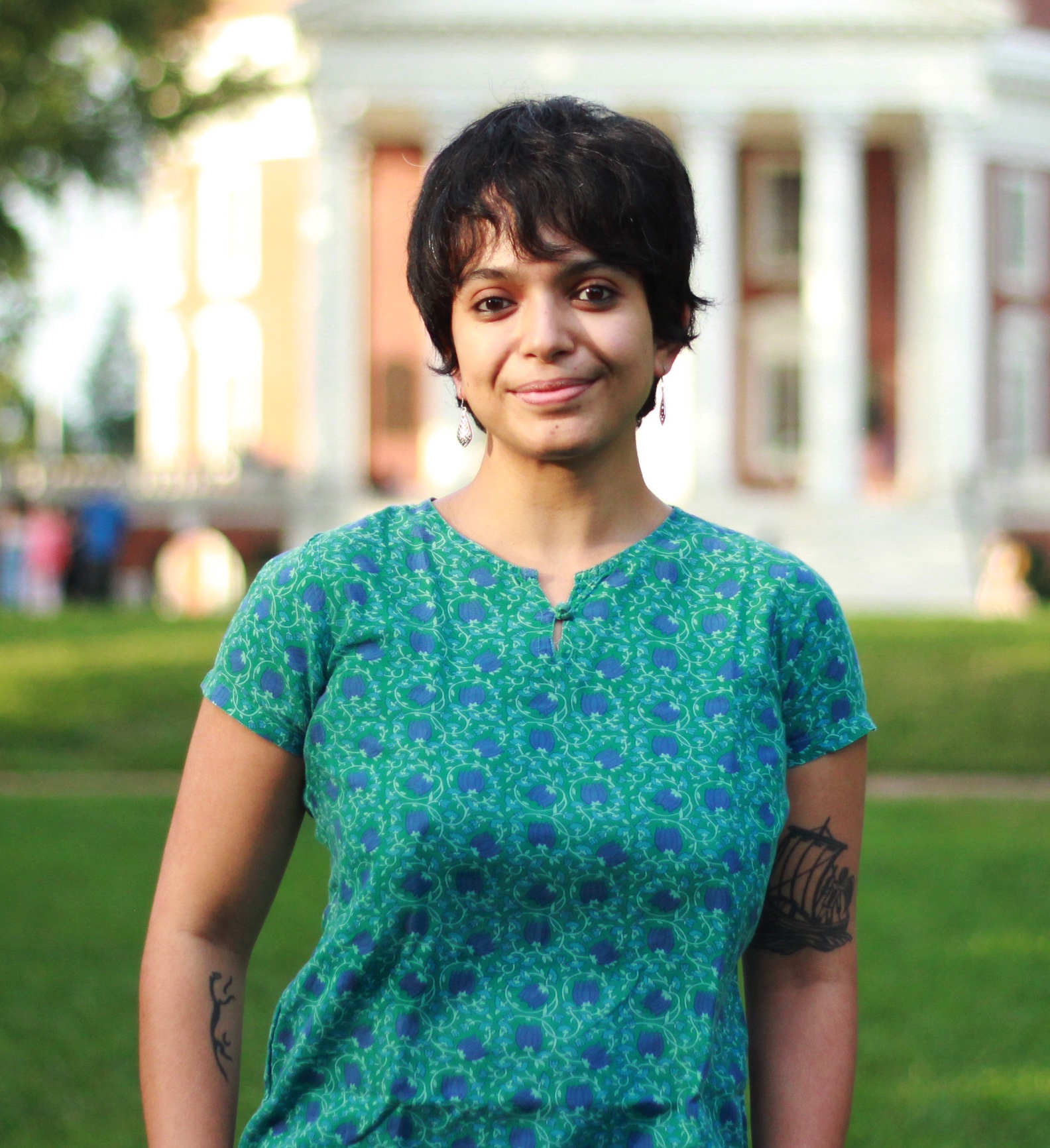Shalmi Barman is PhD candidate in the Department of English at the University’s Graduate School of Arts and Sciences. Her dissertation research examines how Victorian fictions form the modern working-class subject by narrating unemployment.
Shalmi was an Acquisitions Intern for UVA Press. Prior to completing her internship, she also participated in the PhD Plus Career Design series.
Q. What are your post-PhD career aspirations?
I want to work in academic publishing, in both non-profit and commercial settings.
Q. Please summarize your PhD Plus internship.
I applied to work in the Acquisitions department at the University of Virginia Press. I had worked in a university press before graduate school and have a longstanding interest in book production. I am also a graduate student in English and read a lot of scholarly monographs in my field. The PhD Plus internship at the UVA Press presented the opportunity to combine these parts of my experience. To work in Acquisitions, you have to train your editorial eye, assessing the strengths of each manuscript and collaborating with authors and reviewers to refine them. At the same time, you must also consider the book as a product with a target audience and work with departments like Marketing and Editing, Design, and Production to make it commercially viable. I contributed, at different editorial stages, to over 20 book projects. This included doing the first pass on proposals, placing manuscripts with reviewers, collecting and collating reports, and preparing various documents like art logs and cost estimates. I sat in on every type of meeting that Acquisitions participates in, from First Look (where early proposals are informally discussed) to Decision to Publish (the meeting before a project is taken to the Board to get approval for contract). This job balances managerial work (meetings, Excel sheets, Dropbox, email) with critical and qualitative work (reading, writing, light research), and I learnt that I was comfortable with the mix.
Q. What professional skills did you develop during your internship?
During my time at the UVA Press, I developed skills I already had and applied them to the targeted tasks that were given to me. Summarizing a book project for a reviewer or for blurb copy requires the comprehension and writing skills you need to do a literature review. Staying on top of correspondence with multiple people for each book proposal and charting out likely timelines to completion is project management. Contributing to an Acquisitions discussion about a project and pitching your ideas about it reminded me of forms of communication in seminars. I was particularly glad to be able to exercise some editorial skills later in my internship. Though I initially shadowed Angie Hogan, the Editor for Literature and Culture, I also worked with Nadine Zimmerli, the Editor for History and Politics, Nadine entrusted me with the development editing of one of her projects (though military history is not at all my area of expertise) and I found that a sense for narrative and argument in writing need not be limited by one's field. I also had very productive talks with Leah Stearns, the Database and Intellectual Properties Manager, and was encouraged by her and Angie to learn more about metadata practices in publishing.
Q. How did the internship support your career development?
The internship was everything I had hoped it would be. I learnt about how resource-intensive and complex the path to publication is for every scholarly book, effectively seeing the labor of academia from the other side. I gained a lot of familiarity with industry conventions around academic publishing, which has set me up well for a future career. Most of all, I felt welcomed and valued in every interaction I had with the employees at the UVA Press. Some have become trusted mentors who assure me that I'm well suited to academic publishing and want to help me get my first full job in the industry. Since the internship, my friends have noticed that I speak about the minutiae of publishing with real curiosity and confidence. This is because I now see publishing differently. It is not only one of several knowledge-industry jobs that I could do with reasonable competence, but the one where I can most meaningfully contribute with my particular intelligence and sensibilities. If this works out in the long term, I have the UVA Press team to thank.
Q. What advice would you give peers on utilizing PhD Plus internships for career development?
For international students (like me!) who have strict legal limitations on where and how much they can work, a PhD Plus internship is a great way to get paid industry experience while on your student visa. No matter what office or employer you end up interning with, ask questions about processes and mechanisms. The workflows and bureaucracy of corporate organizations are often a black box to graduate students, but you need to have a working knowledge of these for most post-grad-school careers (including in academia). Build relationships with your mentors and other long-term employees at the workplace. Don't be afraid to discuss your career plans with them and ask for specific advice about job searching, networking, interviews, personal statements. People are happy to help young jobseekers who understand their own abilities and are motivated to exercise them. Ask for what you need.

